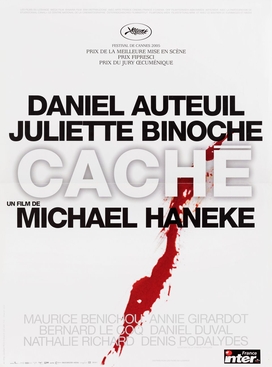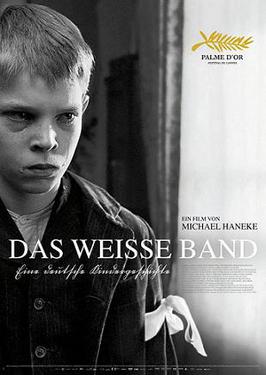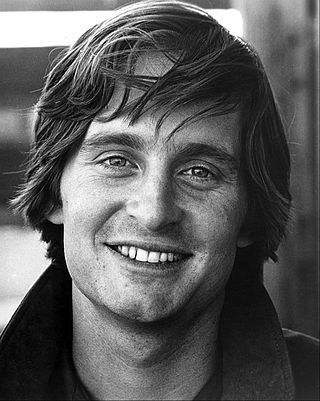1930 (MCMXXX) was a common year starting on Wednesday of the Gregorian calendar, the 1930th year of the Common Era (CE) and Anno Domini (AD) designations, the 930th year of the 2nd millennium, the 30th year of the 20th century, and the 1st year of the 1930s decade.

Isabelle Anne Madeleine Huppert is a French actress. Known for her portrayals of austere and morally compromised women, she is considered one of the preeminent actresses of her generation. Huppert is the most nominated actress at the César Awards with 16 overall and 2 wins and is also the recipient of several accolades, including five Lumières Awards, a BAFTA Award, three European Film Awards, two Berlin International Film Festival, three Cannes Film Festival and Venice Film Festival honors, a Golden Globe Award, and an Academy Award nomination. In 2020, The New York Times ranked her second on its list of the greatest actors of the 21st century.

The Piano Teacher is a 2001 erotic psychological drama film written and directed by Michael Haneke, based on the 1983 novel of the same name by Elfriede Jelinek. It tells the story of an unmarried piano teacher at a Vienna conservatory, living with her mother in a state of emotional and sexual disequilibrium, who enters into a sadomasochistic relationship with her student. A co-production of Austria and France, Haneke was given the opportunity to direct after previous attempts to adapt the novel by filmmakers Valie Export and Paulus Manker collapsed for financial reasons.

Michael Haneke is an Austrian film director and screenwriter. His work often examines social issues and depicts the feelings of estrangement experienced by individuals in modern society. Haneke has made films in French, German, and English and has worked in television and theatre, as well as cinema. He also teaches film direction at the Film Academy Vienna.

Lumière and Company is a 1995 anthology film made in collaboration between forty-one international film directors. The project consists of short films made by each of the filmmakers using the original Cinématographe camera invented by the Lumière brothers.

Caché, also known as Hidden, is a 2005 psychological thriller film written and directed by Michael Haneke and starring Daniel Auteuil and Juliette Binoche. The plot follows an upper-middle-class French couple, Georges (Auteuil) and Anne (Binoche), who are terrorised by anonymous tapes that appear on their front porch and seem to show the family is under surveillance. Clues in the videos point to Georges's childhood memories, and his resistance to his parents' adopting an Algerian orphan named Majid, who was sent away. The tapes lead him to the now-grown Majid.
New Extreme Films describes a range of transgressive films made at the turn of the 21st century that sparked exploitative, scandal and controversy, and provoked significant debate and discussion. They were notable for including graphic images of violence, especially sexual violence and rape, as well as explicit sexual imagery.
An auteur is an artist with a distinctive approach, usually a film director whose filmmaking control is so unbounded and personal that the director is likened to be the "author" of the film, thus manifesting the director's unique style or thematic focus. As an unnamed value, auteurism originated in French film criticism of the late 1940s, and derives from the critical approach of André Bazin and Alexandre Astruc, whereas American critic Andrew Sarris in 1962 called it auteur theory. Yet the concept first appeared in French in 1955 when director François Truffaut termed it policy of the authors, and interpreted the films of some directors, like Alfred Hitchcock, as a body revealing recurring themes and preoccupations.

The White Ribbon is a 2009 German-language drama film, written and directed by Michael Haneke. Released in black-and-white, the film offers a dark depiction of society and family in a northern German village just before World War I. According to Haneke, The White Ribbon "is about the roots of evil. Whether it's religious or political terrorism, it's the same thing."
A bibliography of reference material associated with the James Bond films, novels and genre.
This is a bibliography of reference works on film by genre.

A Satanic film is a subgenre of horror film, and at times other film genres, that involves the Devil as a concept or a character. Common themes/characters in Satanic film include the Antichrist, demonic possession, exorcism, and witchcraft.
The Robert Award for Best Non-American Film is an award presented by the Danish Film Academy at the annual Robert Awards ceremony. The award has been handed out since 1997. Between 1984 and 1996 a Robert Award for Best Foreign Film was handed out.

American actor and producer Michael Douglas began his film career with a brief uncredited role in Cast a Giant Shadow (1966). In the same year he played a small role in the play Bedford Forrest. His performance in Hail, Hero! (1969) earned him a nomination for the Golden Globe Award for Most Promising Male Newcomer. He won the 1971 Theatre World Award for Pinkville. During 1972–76, he played the lead role in the TV series The Streets of San Francisco. In 1975, Douglas produced One Flew Over the Cuckoo's Nest which won the Academy Award for Best Picture, Golden Globe for Best Picture and BAFTA Award for Best Film.

Art horror or arthouse horror is a sub-genre of both horror films and art-films. It explores and experiments with the artistic uses of horror.
This page is based on this
Wikipedia article Text is available under the
CC BY-SA 4.0 license; additional terms may apply.
Images, videos and audio are available under their respective licenses.








